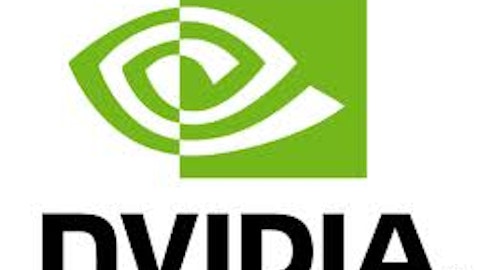The top song in Billboard‘s Hot 100 this week is Baauer’s “Harlem Shake” and it wouldn’t be there without YouTube.
It’s rare to see a track debut at the top of the music industry’s popularity list. “Harlem Shake” wasn’t even on the Hot 100 a week earlier. It wasn’t even a well-known song among fans of electronic music three weeks ago, but that’s when an Internet meme went viral on Google Inc (NASDAQ:GOOG)‘s video-sharing website.

A few years ago this would’ve been a disaster. Tens of thousands of people — including some of YouTube’s most prolific content creators — trampling YouTube’s requests for users not to upload copyrighted music would’ve amounted to a mutinous threat.
This time it’s an opportunity.
“We’ve, from the beginning, been very much a proponent of allowing everybody to do whatever they want with our stuff, as long we’re able to monetize it,” Baauer’s label manager Jasper Goggins tells Time this morning. “It’s a great way to help spread the music.”
Monetization is the key. Mad Decent — Baauer’s label — is able to profit from the craze through Google Inc (NASDAQ:GOOG)’s Content ID algorithm than can slap ads on the claimed clips. Google Inc (NASDAQ:GOOG) and the artist share the resulting revenue.
The publicity is also helping outright sales. Just as viral spoof videos helped propel Carly Rae Jepsen’s “Call Me Maybe” last year, Baauer and its label are benefiting from the publicity.
A whopping 262,000 downloads of the song were purchased last week, according to The New York Times. Pair that up with 103 million views on YouTube across the tens of thousands of “Harlem Shake” videos and the song hit No. 1 with a bullet on the weekly Billboard chart.
It’s a case of perfect timing. A decade ago, Billboard relied on record sales and radio station playlists to sort out its weekly Hot 100 missive. It just started incorporating YouTube views, just in time to wake up the stodgy music industry with this week’s surprising top entry.
For investors, this is another reason to steer clear of the prerecorded music industry. It doesn’t take major label representation to get noticed as recording stars are birthed on reality show competitions and now viral videos.
Thankfully, the record companies are making it easy for investors to avoid them. Warner Music Group was taken private two summers ago. EMI was acquired by Universal Music in 2011, which itself is owned by France’s Vivendi. Sony Corporation (ADR) (NYSE:SNE) is the only other major label, but music makes up a small part of the businesses of Vivendi and Sony.
Google Inc (NASDAQ:GOOG)’s YouTube will continue to be the tastemaker of choice here. YouTube is now serving more than 4 billion hours of content a month, and a lot of that comes in the form of music videos.
A Neilsen’s Music 360 survey last year showed that 64% of participants between the ages of 13 and 17 turn to YouTube for music. Why not? It’s free, even if they have to put up with the ads. A YouTube playlist can just stream in the background, and that beats Pandora Media Inc (NYSE:P)‘s ad-supported algorithm-generated playlists with limited skips. That same survey found that just 35% of the participants listen to Pandora.
In the end, “Harlem Shake” will be another meme that comes and goes. Many will argue that it grew tired one or two weeks ago. However, its role in redefining the way that the music industry approaches copyright violators and the growing power of Google as a hit maker won’t be ignored or forgotten.
The article “Harlem Shake” Is Bigger Than You Think originally appeared on Fool.com and is written by Rick Aristotle Munarriz.
Longtime Fool contributor Rick Aristotle Munarriz has no position in any stocks mentioned. The Motley Fool recommends Google. The Motley Fool owns shares of Google.
Copyright © 1995 – 2013 The Motley Fool, LLC. All rights reserved. The Motley Fool has a disclosure policy.




